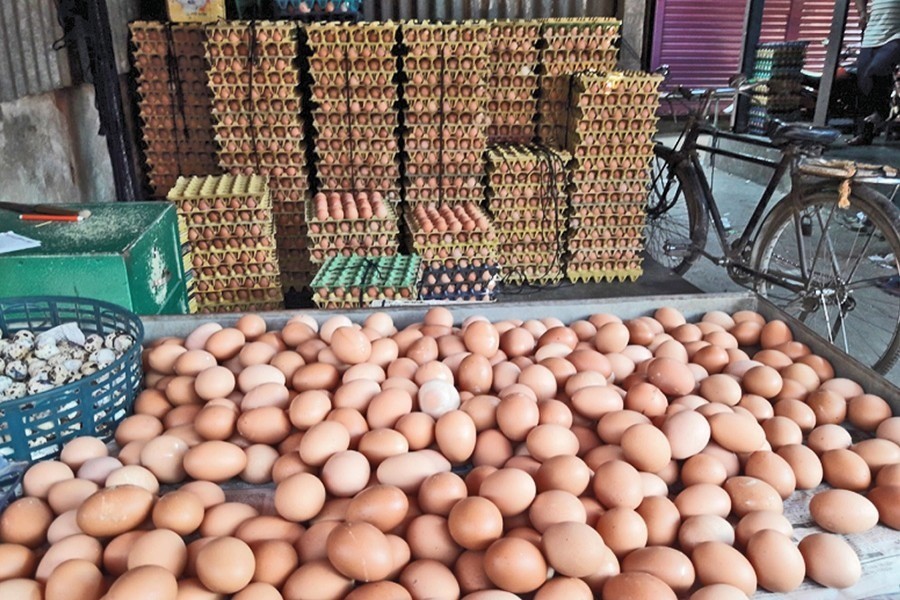A number of traders sought the government's approval to import 510 million pieces of egg from India, sources said, although the domestic production would be enough to meet the country's annual demand.
In a recent hearing, local poultry farmers expressed deep concern over the import proposal.
It would be suicidal for the local poultry industry, as its growth would be badly affected, if the government allows egg import, they warned.
They also suggested taking a long-term policy to solve the present egg supply shortage.
However, some Dhaka-based trading houses - Popular Trade Syndicate, Rip Enterprise, Ahmed Business and Commerce, Tiger Trading, Sazzad Enterprise, and Save and Safety International - recently requested the Ministry of Commerce (MoC) to allow egg import under the existing import policy, said officials.
The enterprises said they want to import egg to meet its current supply deficit and help stabilise its increased price in the local market.
The MoC already forwarded the traders' letters to the Ministry of Fisheries and Livestock (MoFL), requesting it to provide necessary recommendations in this regard.
Some govt high-ups want to allow egg import, and some are against the import to protect the local poultry sector, the officials added.
Moshiur Rahman, president of the Bangladesh Poultry Industries Central Council (BPICC), could not be contacted over phone despite several attempts for taking his comment regarding the issue.
Sumon Howlader, President of the Bangladesh Poultry Association (BPA), said, "The government should not approve the egg import proposal, even if it properly follows the existing policy."
"If it is approved, the domestic poultry sector will face a severe setback."
Besides, the government should urgently stop fixing of egg prices by some big egg producers. A number of poultry firms, especially egg producers, were closed due to this egg price manipulation by the big producers.
For this reason, egg production is not reaching the expected level, he added.
The BPA president noted that eggs are being sold in the local market at higher prices due to excessive prices of feeds - charged by different feed companies concerned.
The government should take necessary steps to import feeds for the local poultry sector, as around 80 per cent of its cost is spent for procuring feeds.
Mr. Howlader claimed that the small farmers are selling eggs at lower prices than their production cost. Currently, they need around Tk 10.50 to produce each egg.
In the middle of August, the price of farm egg (brown) hit a record high of Tk 160-180 a dozen in the market. After that, the egg prices declined slightly due to the government's different moves. But the prices are still high - Tk 12-12.5 per piece at retail level.
Poultry sector insiders attributed the surge in poultry meat and egg prices to rise in prices of poultry feed and day-old-chick (DOC) along with closure of many firms.
Besides, egg production also declined due to frequent load-shedding, they added.
The country's annual egg output surged to 23.35 billion pieces in last fiscal year (FY), 2021-22, against the set annual target of 22.66 billion pieces, according to the Department of Livestock.
But, the country is likely to fail in achieving the set target to produce 23.15 billion eggs in current FY. Only 5.97 billion eggs were produced till September - due to shutdown of a number of poultry firms.
In line with Bangladesh's target of becoming a developed country by 2041, a healthy nation is also desirable, which can be achieved, among others, through per capita annual intake of 208 pieces of egg.
Currently, the country's annual per capita egg consumption is 136 pieces, a data showed.
An average person needs to eat minimum 104 eggs annually, according to the Food and Agriculture Organisation (FAO).
Around 40 million pieces of eggs are daily produced in the country. Of these, 9-12 per cent is produced by big poultry firms and the rest by small entrepreneurs in rural areas.


